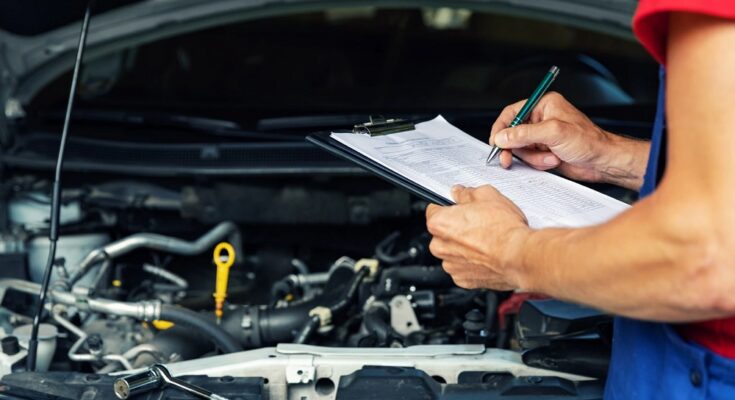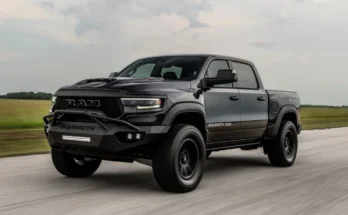In 2021, there were more than 15 million new car sales in the US. Buying a new car is an exciting experience and an auto warranty offers peace of mind.
But how exactly does a car warranty work and why is it meaningful? More importantly, how do consumers find and select the best car warranty?
The following guide will explain the most important features of auto warranties. Read on and drive your new ride off the lot with confidence.
What Is a Car Warranty?
Auto warranties act as service contracts for vehicles. The provider of the vehicle agrees to repair any broken parts caused by faults in the manufacturer’s design.
Warranties also cover any defects caused by the improper installation of parts. However, the warranty won’t cover every auto problem you encounter.
For example, general wear and tear or damage from an auto accident wouldn’t get covered by a warranty. Things like dings and dents and routine oil changes don’t fall under warranties either.
Why Warranties Are Important
Having the best car warranty makes the repair and modification of defective parts simple and affordable. The car’s manufacturer gets held liable for delivering parts that are difficult to find in local markets.
Peace of mind is perhaps the most important benefit of a car warranty. You won’t have to worry about any unexpected and expensive defects.
Manufacturer warranties for new vehicles come packaged with the total price. They’re free and you don’t need to pay any additional charges.
If you want to sell your car and it has a warranty, it lets buyers know that the vehicle is well maintained. Warranties are an excellent selling point and might allow you to sell your car at a higher price.
What Does a Basic Warranty Cover?
Basic limited warranties for vehicles usually protect the most standard components of a car. They replace things like door handles and mirrors for free if they break because of manufacturer errors.
A basic warranty doesn’t cover other essential parts such as the transmission. Typically, basic warranties last new car owners around 3 years or 36,000 miles.
It’s important to note that some manufacturers cover electronic components like speakers and display screens. However, sometimes coverage for those kinds of components costs extra to add on.
Always read the fine print of a basic manufactures warranty when you buy a new vehicle. Decide if it includes all the coverage you want and requests the price for add-ons if it doesn’t.
Powertrain Warranties
If you don’t know much about cars, the term “powertrain” can seem confusing. It basically refers to the working components of a vehicle that make it run.
Working components include parts such as the engine and transmission. These kinds of components cost the most to repair or replace. So, having a powertrain warranty might help save a lot of money and headaches later on.
Your car’s engine and other working parts shouldn’t go bad for many years unless there’s a defect. You can even prolong their lives with regular car maintenance.
If your vehicle becomes clunky after only a few years, it’s probably the manufacturer’s fault. Fortunately, most powertrain warranties last for 5 years or up to 60,000 miles.
Bumper-to-Bumper Warranties
Bumper-to-bumper warranties are some of the most comprehensive warranties available. As the name implies, they’re a very broad type of warranty.
You might assume that they cover every part of your car from the front to the back and that’s somewhat true. However, most bumper-to-bumper warranties include fine print that excludes certain parts.
Their biggest disadvantage over other warranty types is that they don’t usually last very long. A standard bumper-to-bumper warranty typically only protects a vehicle for around 10,000 miles or slightly more.
Corrosion Warranties
Several car brands offer an auto-corrosion warranty to protect against issues such as rust and corroding components. The majority of auto brands offer this warranty for about 5 years.
What Is an Extended Car Warranty?
Any warranty that you buy for your car is an extended warranty for your vehicle. This means it applies to cars that have passed and completed their original manufacturer’s warranty timeframe.
The extended warranty might be for around 2 to 4 years following the fulfillment of the car’s initial warranty. You can buy an extended warranty when you buy your new car or after the manufacturer’s warranty runs out.
Mainly, there are 2 kinds of extended warranties to choose from. One type gets offered by your vehicle’s manufacturer or by their approved dealerships.
The second type of extended warranty is an after-market warranty. They get proposed by third-party vendors such as an insurance company or a warranty company.
Warranty vs Insurance
The most significant difference between auto warranties and car insurance is the type of protection they each offer drivers. Instead of covering parts and labor caused by defects, insurance covers damage caused by accidents.
Car insurance might help pay for vehicle repairs if it gets damaged from a crash or natural disaster. Insurance also helps protect against theft and fires. However, it won’t cover equipment breakdowns or mechanical issues.
Liability car insurance helps pay for someone else’s medical bills or vehicle damage if you’re at fault. It can even cover someone else’s home or other property damaged in a car accident.
Some car insurance even protects you if you’re in an accident with another driver that’s uninsured. Other insurances help pay your own medical expenses and those of your passengers.
Because warranties and insurance cover totally different issues, it’s best to have both. Furthermore, drivers must have at least liability insurance. Driving without proper insurance might result in a fine or even jail time.
The Importance of a Car Warranty
Now you know why a car warranty is important and how it can spare you a lot of anxiety and money. You also know what the most common types of warranties cover and how warranties differ from insurance. Remember this guide before you leave the dealership and decide what protections you truly need. Check out our site’s automotive category for more tips and tricks to keep your car on the road.




